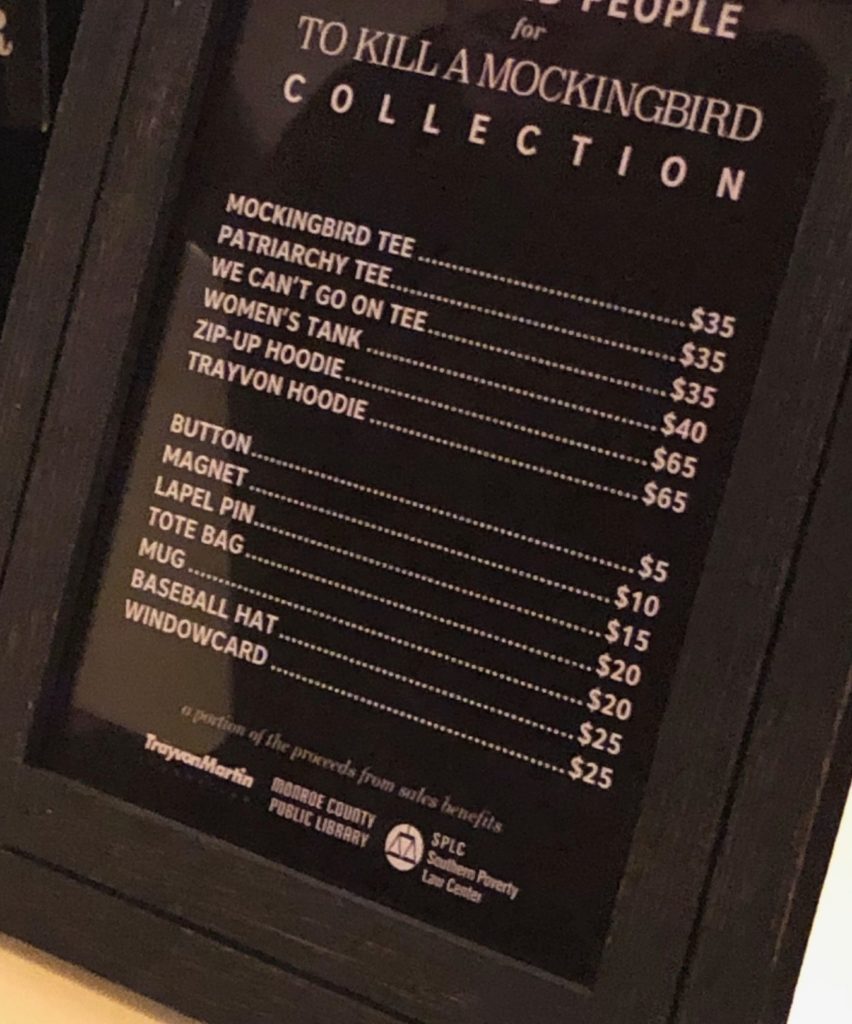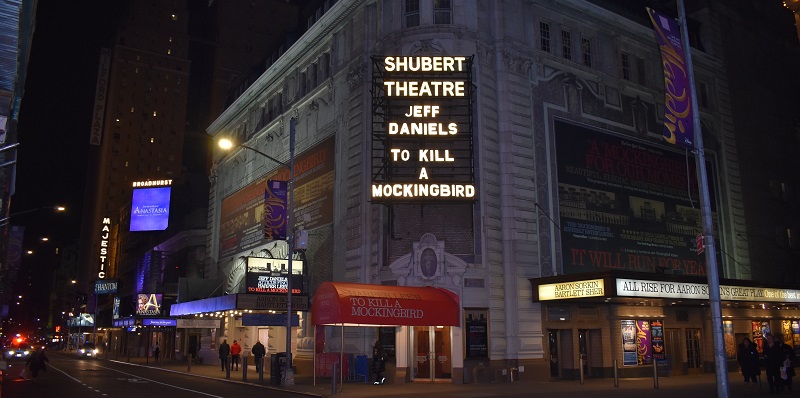NEW YORK – Many feared for the worst when news broke earlier this year that an Aaron Sorkin stage adaptation of Harper Lee’s “To Kill a Mockingbird” would be opening on Broadway.
In this highly polarized political environment, I shared a suspicion that the Coastal elites behind this production would use Lee’s classic novel to perversely attack President Donald Trump or advance the latest hot-button left-wing cause du jour.
Yet, the temptation to go and find out what form this might take, however, was too much for the Alabamaphile in me to pass up.
So, ticket in hand, I set one rule for myself. Given my political leanings and general disgust for liberal virtue-signaling, I avoided reading the reviews from the professional Broadway watchers and media types.
Why is this presentation of Harper Lee’s signature work important? Obviously, there is the “To Kill a Mockingbird” cult following. More importantly, the novel and its companion “Go Set a Watchman” are important historical documents for the State of Alabama. Lee’s works are, to date, the best offering of life in rural 1930s and 1940s Alabama.
How would entertainment industry heavyweights like screenwriter Aaron Sorkin, producer Scott Rudin and lead actor Jeff Daniels disseminate that history to the tens of thousands who will see this production?
According to the Los Angeles Times’ Nardine Saad, Sorkin’s “To Kill a Mockingbird” has already grossed a record of nearly $1.6 million after its first full week and has an advance of more than $22 million in ticket sales.
Getting to this point wasn’t that easy for Sorkin and producer Scott Rudin. Back in March, Harper Lee’s estate sued Rudin. Lee estate attorney Tonja Carter raised concerns that the script deviated too much from the novel, and thus was in violation of an original agreement to put the story on Broadway.
In the end, the two sides quietly settled their dispute and nine months later, “To Kill a Mockingbird” opened at the Sam S. Shubert Theatre on West 44th Street in midtown Manhattan.
The 7 p.m. day-after-Christmas showing at the theater was a full-house affair, as are most of the shows from now until April. The show isn’t the usual out-of-town fare for tourists you might see at the nearby theaters showing “Frozen” or “Phantom of the Opera.”
The idea of “To Kill a Mockingbird” on Broadway for some may conjure a notion of a musical. Rest assured, Scout and Jem are not singing show tunes in this adaptation.
For the most part, the intellectual integrity of Lee’s novel remains intact. To fully appreciate this show, one would have to be familiar with the “To Kill a Mockingbird” story, which on its own is complex. Sorkin’s version is not chronological, and it isn’t entirely told from the viewpoint of protagonist Scout Finch, the narrator in Lee’s novel.
Sorkin takes his liberties with some of the characters. Calpurnia, the Finch family housekeeper, played by actress LaTanya Richardson Jackson, is much more of an outspoken critic of the racially divided society in Maycomb, Alabama, the setting for the story.
Dill, played by actor Gideon Glick, takes a slightly different form from the character portrayed in the novel and in the 1962 “To Kill a Mockingbird” film. He is more of an older version of Truman Capote than the childhood friend who is believed to be Lee’s basis for the character of Dill.
The hero of the tale Atticus Finch is played by Jeff Daniels, who has reinvented himself as more than just the guy from “Dumb and Dumber” over the last decade. At times, it is a struggle to watch Daniels, who hails from Michigan, pull off a southern accent. Otherwise, his portrayal of Atticus Finch, very much different from Gregory Peck in the 1962 film, works for this setting.

It’s a respectable and professionally done production, as one should expect for any major Broadway show.
As for going out of the way to make a grand proclamation about current affairs, Sorkin does not do that. Antagonist Bob Ewell doesn’t put on a “Make America Great Again” ballcap or anything like that.
Sorkin, however, does make Bob Ewell, played by Frederick Weller, a more hateworthy figure, this time as anti-Semitic, in addition to being drunk and racist.
Other than these few wrinkles, Sorkin is true to Lee’s original story in the “To Kill a Mockingbird” novel. It has comedic elements, but they’re not over the top and don’t detract from the seriousness of the story.
However, one can’t help but wonder if Sorkin was using the end of the play to lay out a different path for Atticus Finch than what was in Lee’s “Go Set a Watchman,” which for some of the theatergoers tainted Harper Lee’s legacy.
If you are planning a trip to New York City and were on the fence about seeing it, it’s worth seeing. It is sure to be more thought-provoking than the bulk of the Disney-ified offerings currently showing on Broadway.
It is not an indictment of modern-day Alabama, nor of conservatives or who conservatives elect. Given American pop culture in 2018, that’s saying something.
On a side note:
As with any of these Broadway spectacles, there are “To Kill a Mockingbird” souvenirs available for purchase at the theater, but this list comes with one curiosity.
In addition to “a portion” of the proceeds from the sales going to the Monroe County Public Library in Monroeville, “Trayvon Martin” and the Montgomery-based Southern Poverty Law Center also receive a share.

@Jeff_Poor is a graduate of Auburn University and is the editor of Breitbart TV.













